Whether you are in the market for a humidifier to help with dry skin and sinuses during winter months or already have one and are curious if it’s safe to use around your electronics, you likely have questions about whether humidifiers can damage electronics. This comprehensive guide will answer all of your questions, plus provide useful tips on how to safely use a humidifier around your valuable gadgets.
Humidifiers and Their Benefits
Humidity is the amount of water vapor present in the air, and is typically measured in terms of relative humidity (RH), which is the ratio of the current water vapor content of the air to the maximum amount that could be held at that temperature.
There are many different types of humidifiers, but they all work towards the same goal: increasing the humidity in a space.
Humidifiers offer a number of benefits, chief among them being relief from dry air. Dry air can cause a number of problems, including nosebleeds, difficulty breathing,static electricity shocks, and an increased susceptibility to colds and respiratory infections. Adding moisture to the air with a humidifier can help alleviate these symptoms.
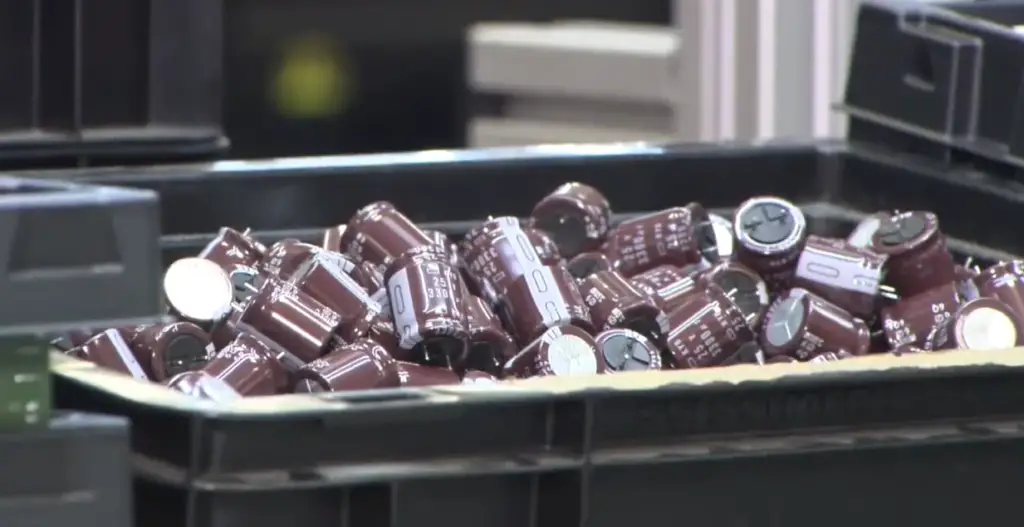
If you suffer from a dry skin condition, a humidifier can also be beneficial. Dry air can worsen these conditions by leaching moisture from the skin. Adding moisture to the air with a humidifier can help keep your skin hydrated and alleviate symptoms.
Humidifiers can also help protect your furniture and wood floors from cracking or warping by preventing the air from becoming too dry. And if you live in an area with hard water, using a humidifier can help prevent mineral deposits from building up on fixtures and appliances.
And if you keep certain types of plants or animals in your home, a humidifier can be beneficial for them as well. Some plants, such as ferns and palms, prefer humid environments, and a humidifier can help create these conditions. And if you have pet reptiles, they may also require higher levels of humidity to stay healthy.
Humidifiers actually help electronics too. If you live in an area with very dry air, using a humidifier can help prevent static electricity build-up on electronic components, which can lead to shorts and failures.
However, one of the concerns that people often have about humidifiers is whether or not they can damage electronics. This is a valid concern, as electronic devices are sensitive to changes in humidity levels.
The good news is that humidifiers generally will not damage electronics if they are used properly. However, there are some precautions you should take to ensure that your humidifier does not damage your electronic devices. [1]
Effects of Humidity on Electronics
Humidity can have different effects on electronic devices, depending on the type of device. For example, computers are particularly sensitive to changes in humidity levels. Let’s see what are the harmful effects of humidity on electronics.
Impact of high humidity
High humidity can cause condensation on electronic devices, which can lead to short circuits. Condensation is the process of water vapor turning into liquid water. This can happen when warm, moist air comes into contact with a cold surface. High humidity means there is more water vapor in the air than usual. When the air can’t hold all of that moisture, some of it will condense on surfaces like walls, windows, and even electronics.
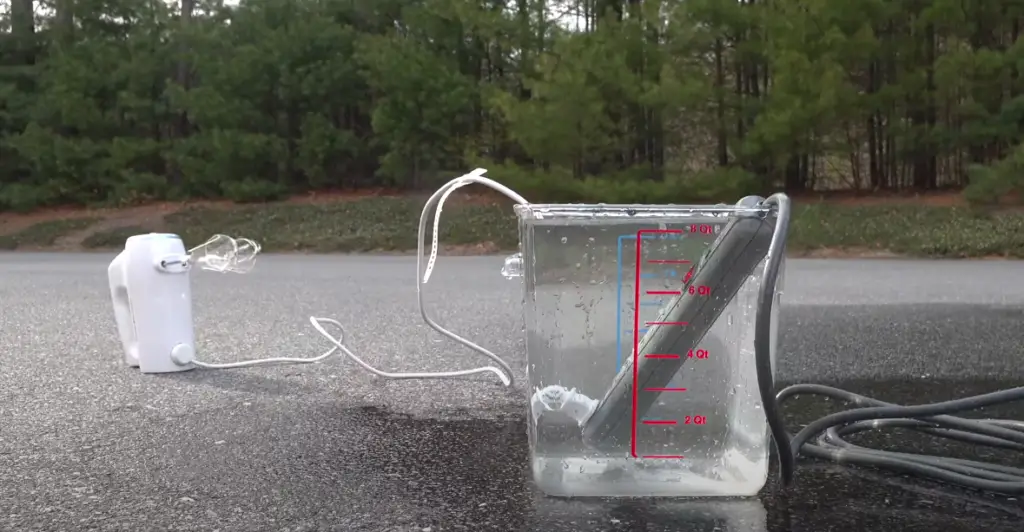
And because water is a conductor of electricity, when there is enough water present, it can create a path for electricity to flow where it should not. This can damage sensitive components within the device and potentially cause the device to stop working.
In addition to damaging the delicate components of an electronic device, high humidity can also promote the growth of mold and mildew. Mold and mildew can damage both the exterior and interior of an electronic device and may even render it unusable.
Impact of low humidity
So we found out that too much humidity is bad for electronics. But what about low humidity?
This is because low humidity levels can cause the internal components of a device to become dried out and brittle. This can lead to short circuits, as well as damage the overall structure of the device.
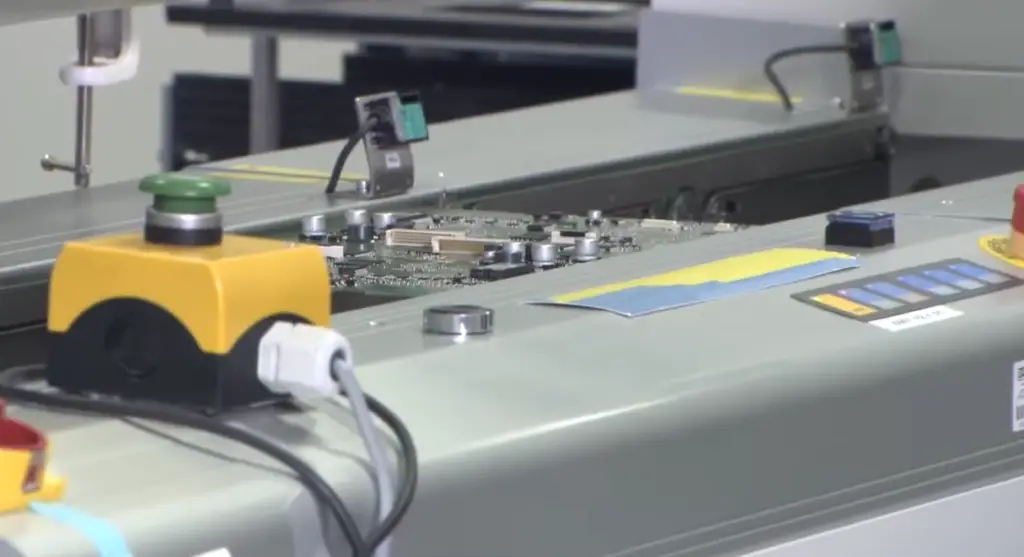
In addition, low humidity levels can make it more difficult for an electronic device to dissipate heat. This can cause the device to overheat and potentially stop working.
You may also have heard of the term “electrostatic discharge” (ESD), but you might not know exactly what it is or how it can affect your electronics. ESD occurs when two objects with different electrical charges come into contact with each other, causing a sudden flow of electricity between them. This electric current can damage sensitive electronic components, which is why ESD is such a big concern for people who work with electronics.
Humidity plays a role in ESD because it affects the way that electricity flows through the air. When the air is dry, static electricity can move around more freely and easily. However, when the air is moist, the water molecules in the air can act as a barrier to the flow of electricity. [2], [3], [4]
What Electronics are Sensitive to Humidity?
Still, not all electronics are created equal when it comes to their sensitivity to humidity. Some electronic devices are more sensitive than others, and these are the ones you need to be most careful with.
The following are some examples of electronic devices that are particularly sensitive to changes in humidity levels:
- Computers: Computers are perhaps the most sensitive type of electronic device when it comes to humidity. High humidity levels can cause condensation on computer components, which can lead to short circuits. Additionally, high humidity can damage the internal insulation of computers, causing them to overheat. Conversely, low humidity levels can damage the hard drive and other sensitive components.
- Laptops: Laptops are even more sensitive to changes in humidity than desktop computers. This is because they have fewer ventilation openings, so the air inside the laptop doesn’t circulate as well. This can cause the components inside the laptop to overheat and fail.
- Circuit boards: Circuit boards are the foundation of most electronic devices. They are made up of a thin layer of copper that is etched with patterns to create electrical pathways. These pathways can be easily damaged by water, so it’s important to keep circuit boards dry.
- Televisions: Humidity by itself isn’t an issue for televisions. However, the condensation it causes can be. When water droplets form on the screen of a television, they can cause the image to distort. In extreme cases, the water can even seep into the electronics and damage them.
- Cameras: If you are a photographer, you know that even a small amount of moisture can damage your camera. This is because moisture can cause condensation on the delicate lenses and other components of a camera, which can lead to short circuits and other problems. Sensors are especially sensitive to humidity, so be sure to keep your camera in a dry environment.
- Printers: Printers are sensitive to both high and low humidity levels. It might come as a surprise to many given how bulky they look. High humidity can cause condensation on the print head, which can lead to clogged nozzles and poor print quality. You will get anything from wrinkles on paper to completely unreadable prints. Low humidity can cause the print head to become dried out and brittle, which can also lead to decreased print quality.
- Audio equipment: Because audio equipment is often delicate, it can be easily damaged by changes in humidity. This includes both musical instruments and sound systems. Subwoofers are particularly susceptible to damage from humidity.
- Game consoles: Game consoles are particularly sensitive to humidity because they rely on a delicate balance of internal components. If the air around a game console is too humid, it can cause the console to overheat, which can damage the internal components. [2], [5], [6], [7]
What’s the Safe Household Humidity Percentage?
You might be wondering what’s the safe household humidity percentage to avoid damaging your electronics. The answer is actually pretty simple – aim for a relative indoor humidity between 40-50%.
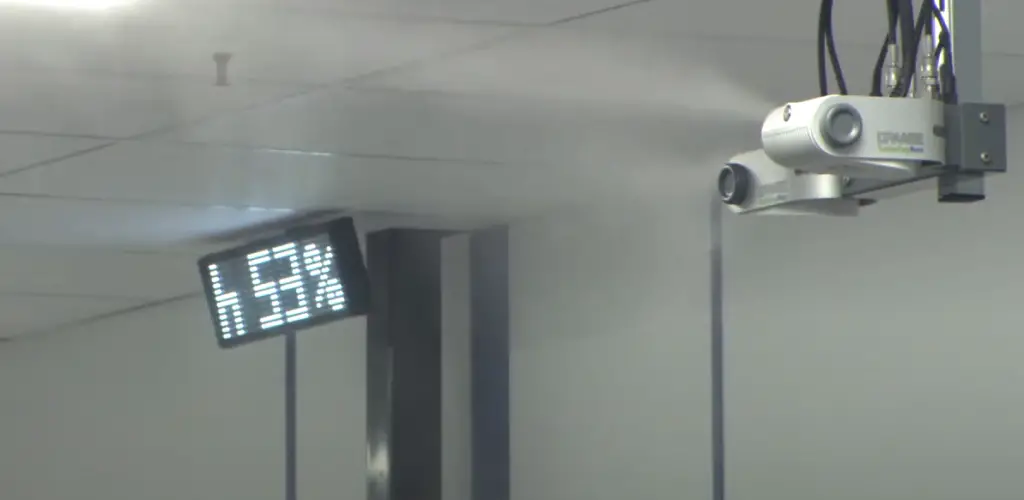
Anything above 50% relative humidity can start to cause problems for your home and for your electronics. That’s because when the air is too humid, it can lead to condensation on surfaces. And when water droplets form on the surface of your electronic devices, it can cause all sorts of damage – from shorting out circuits to encouraging the growth of mold and mildew.
Of course, if you live in a very dry climate, it might not be possible to keep your indoor humidity levels at 40-50%. In that case, aim for the lowest humidity level that’s comfortable for you and your family.
Letting humidity go below the 40% mark however, will make your electronics more susceptible to static electricity. Static electricity is when an electrical charge builds up on an object. And when that happens, it’s possible for that static discharge to damage the sensitive electronic components inside your devices. [2], [3], [4], [8]
How to Prevent Humidity Damage to Your Electronics
Now that you know what’s the safe household humidity percentage, you might be wondering how to prevent humidity damage to your electronics. Luckily, there are a few things you can do.
Check indoor humidity levels regularly
First, you should check indoor humidity levels regularly. You can do this with a hygrometer, which is an inexpensive tool that measures humidity. Hygrometers are available at most hardware stores.
Ideally, you should check your indoor humidity levels at least once a week. But if you live in a particularly humid or dry climate, you might need to check them more often.
Place humidifier in areas with low humidity only
If you do decide to use a humidifier in your home, make sure to place it in areas with low humidity only. That way, you can avoid increasing the overall humidity level in your home and damaging your electronics.
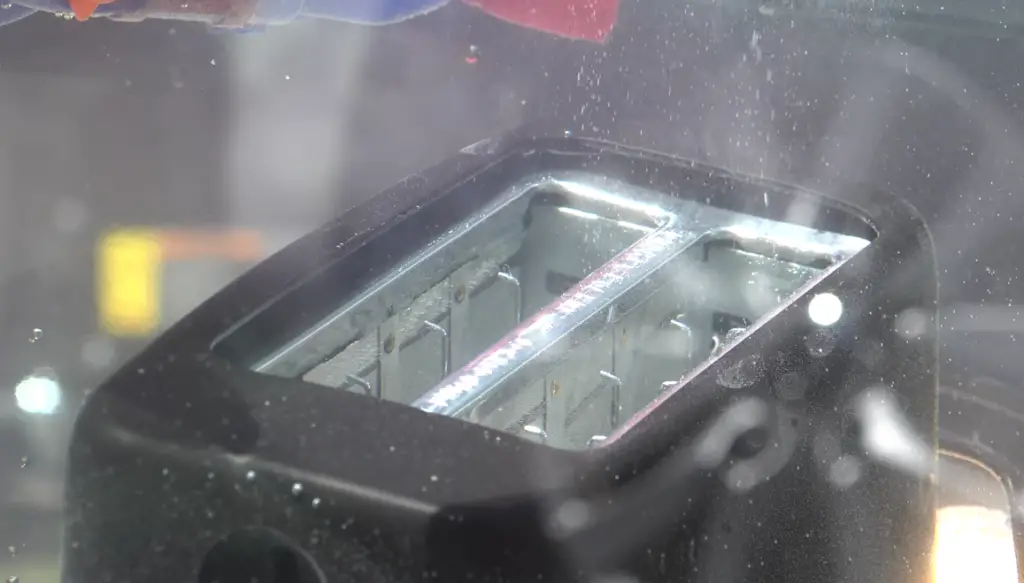
Another thing to keep in mind is that not all humidifiers are created equal. Some humidifiers will produce more moisture than others.
That way, you can rest assured knowing that your humidifier will turn off once the desired level of humidity has been reached.
Don’t place your humidifier next to electronics
This one might seem obvious, but it’s worth mentioning. Placing your humidifier next to electronics is just asking for trouble. The water inside the humidifier can easily splash or leak onto your devices, causing all sorts of damage.
We recommend placing your humidifier at least 3 feet away from any electronics. This way, you will be able to enjoy the effects of the humidifier without having to worry about damaging your devices.
Use silica gel packets
The next – and arguably easiest – way to prevent humidity damage to your electronics is to use silica gel packets. Silica gel is a desiccant, which means it absorbs moisture from the air.
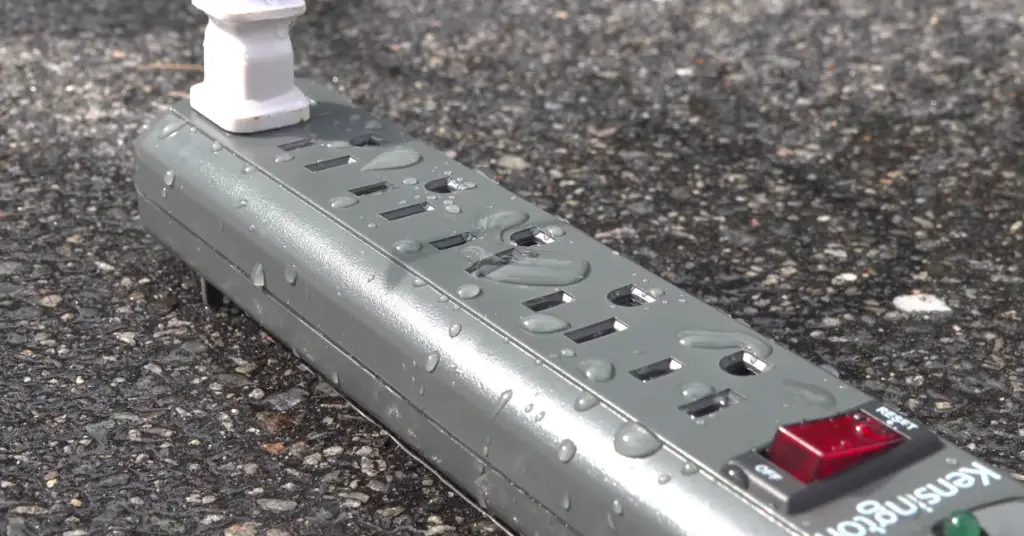
You can find silica gel packets at most stores that sell electronics. Just make sure to look for packets that are marked “indicating” or “non-indicating.” Indicating silica gel packets change color when they’re full of moisture, which makes it easy to know when it’s time to replace them.
Non-indicating silica gel packets don’t change color, so you’ll need to keep track of how often you need to replace these.
Clean your humidifier regularly
Another way to prevent humidity damage to your electronics is to clean your humidifier regularly. This will help to prevent the growth of mold and mildew inside the humidifier, which can then be released into the air and potentially damage your electronics.
Cleaning your humidifier is actually pretty simple. Just make sure to follow the instructions that came with your humidifier. Generally, you will need to empty and rinse the water tank once a week. You should also wipe down the humidifier unit with a damp cloth every few days. [2], [3], [4], [8]
FAQ
How do I protect my electronics from condensation?
The best way to protect your electronics from condensation is to use a dehumidifier. Dehumidifiers work by removing moisture from the air, which helps prevent condensation on your electronics. You can find dehumidifiers at most home improvement stores.
How far should a humidifier be from electronics?
It is best to keep a humidifier at least three feet away from any electronics in your home. This will help prevent any potential damage that could be caused by moisture. So you can safely place a humidifier in the same room as your PC, fish tank, or other electronics.
Can a humidifier ruin electronics?
This is a common question with a few different answers. The most common myth is that humidifiers can create too much moisture in the air and damage electronics. However, as long as the humidity stays within 40-50% range, they cause no harm. In fact, many experts agree that humidifiers actually help protect electronic devices by preventing static build-up.
Static electricity is created when two surfaces come into contact and then separate. This can happen when you move around on a carpet or when you take off your sweater. The static electricity builds up on your body until it eventually discharges, often giving you a shock.
While a discharge of static electricity may not be harmful to you, it can be disastrous for sensitive electronic components. When static electricity discharges from your body to an electronic device, it can cause a sudden surge of power that can damage or destroy the delicate circuitry. This is why humidifiers are often used in clean rooms where sensitive electronic equipment is assembled. The moisture in the air helps to prevent static build-up.
Can a humidifier damage your computer?
The short answer is: Yes, a humidifier can damage your computer. However, it is not likely to happen unless you have a very old or lower quality humidifier.
Additionally, if the humidifier does not have a proper filter, bacteria and mold can grow inside the unit and be released into the air along with the water vapor. These contaminants can also damage electronics.
To avoid any problems, it is important to choose a high-quality humidifier that has a good filtration system. You should also regularly clean and maintain your humidifier according to the manufacturer’s instructions.
And lastly, don’t place your humidifier too close to your computer!
Can I put a humidifier next to the TV?
In short, no. While humidifiers are generally safe to use around electronics, there is a chance that the water droplets from the humidifier can damage your TV screen or other sensitive components.
If you must use a humidifier near your TV, be sure to keep it at least a few feet away and wipe down the TV screen regularly to prevent any water build-up.
Useful Video: Can High Humidity Damage Electronic Devices?
Conclusion
Humidifiers found a place in many households for a reason – they improve air quality and alleviate many health concerns. However, as with any appliance, there is always a potential for problems.
The most common issue with humidifiers is that they can damage electronics if used incorrectly. While this is true, it is important to remember that the risk is relatively low and easily avoidable with a little bit of care.
So, can a humidifier damage electronics? The answer is yes, but only if your room humidity reaches either of two extremes. Humidity that is too low can cause static electricity build-up, which can damage electronic components. On the other hand, humidity that is too high can create an environment conducive to corrosion, which can also damage electronics.
Fortunately, both of these problems are easily avoidable by simply monitoring the humidity level in your room and adjusting the output of your humidifier accordingly. By doing so, you can rest assured that your electronics will be safe and sound.
The easiest way to prevent a humidifier from ruining your electronics, is placing it further away from them. Just 3 feet should be enough of a distance. If you have any other tips on how to keep your electronics safe from humidifier damage, let us know in the comments below! Thanks for reading!
References
- https://www.enercare.ca/blog/air-quality/benefits-using-humidifier-home
- https://www.humidifiergeek.com/can-humidifier-damage-electronics/
- https://www.condair.com/humidifiers-for-electronics
- https://applianceanalysts.com/can-humidifier-damage-electronics/
- https://yourbusiness.azcentral.com/humidity-affects-printers-8298.html
- https://www.techwalla.com/articles/tv-problems-due-to-high-humidity
- https://www.beyondphototips.com/humidity-fungus-and-cameras-problems-solutions/
- https://www.prismspecialties.com/blog/2020/06/10/is-humidity-bad-for-your-electronics/


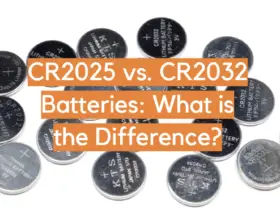


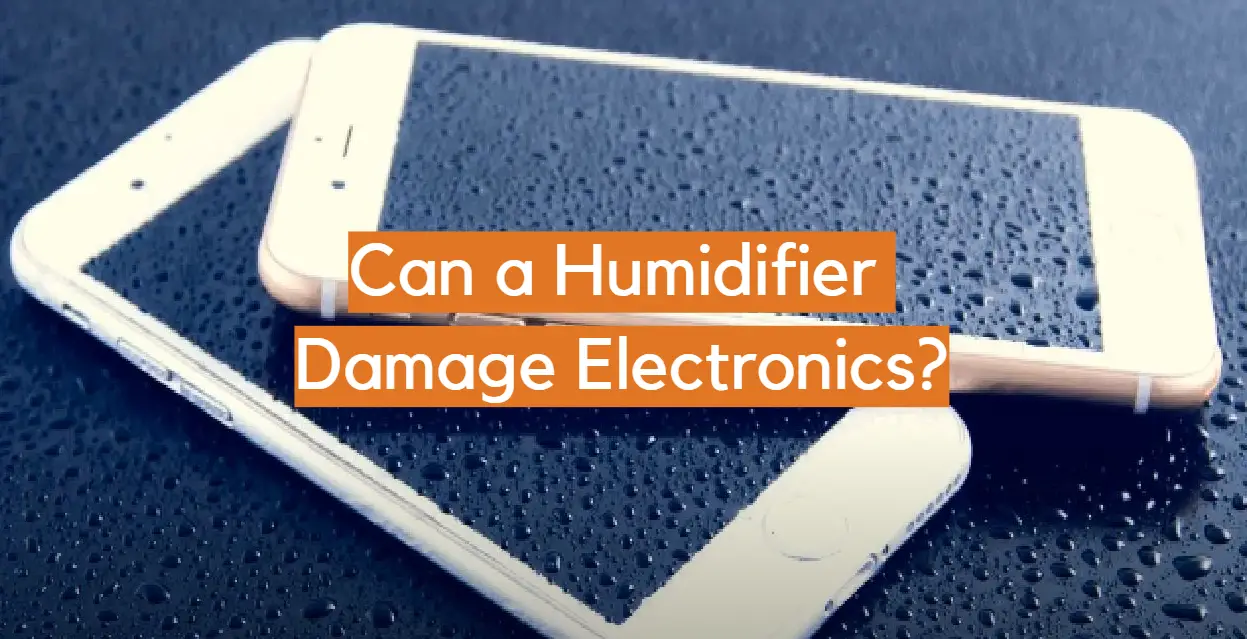




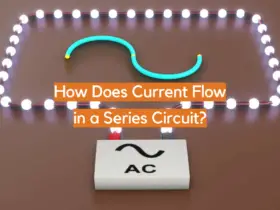



Leave a Reply